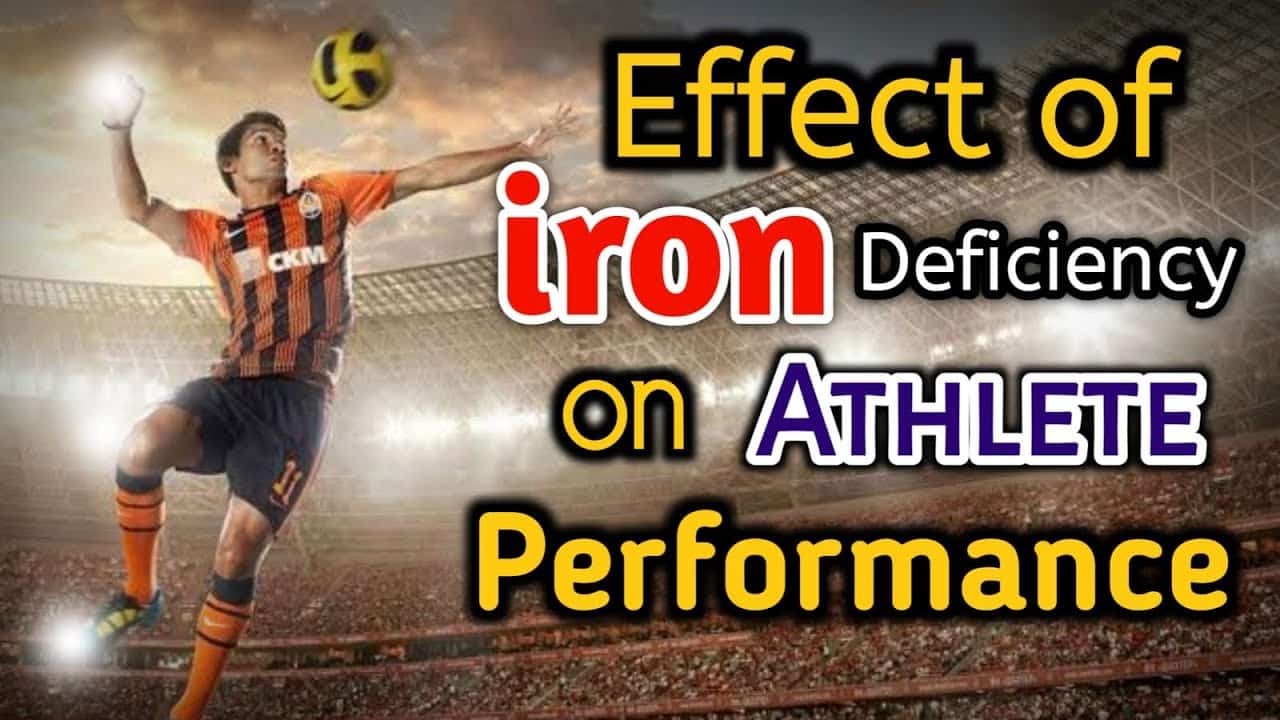Introduction: (Impact of Iron Deficiency on Athlete Performance)
Iron deficiency, a common nutritional ailment, has far-reaching consequences on various aspects of health.
Athletes, who push their bodies to the limits, are particularly susceptible to the adverse effects of iron deficiency.
This article delves into the intricate relationship between iron levels and athlete performance, exploring how this often-overlooked factor can significantly impact an athlete’s physical and mental capabilities.
The Role of Iron in the Body:
Iron plays a crucial role in the human body, serving as a key component in the formation of hemoglobin .
This protein is responsible for transporting oxygen from the lungs to the rest of the body.
Additionally, iron is essential for energy metabolism, immune function, and cognitive processes.
In the context of athletic performance, the efficient transport of oxygen to working muscles is paramount for endurance, strength, and overall well-being.
Effects on Athlete Performance:
Diminished Oxygen Transport:
Iron deficiency directly impairs the synthesis of hemoglobin, leading to decreased oxygen-carrying capacity in the blood.
As a result, athletes may experience fatigue, reduced stamina, and compromised endurance during training and competition.
Even mild iron deficiency can hinder an athlete’s ability to perform at their peak.
Decreased Exercise Tolerance:
Athletes with insufficient iron levels often exhibit lower exercise tolerance.
This can manifest as a decreased ability to sustain high-intensity efforts, impacting performance in sports that require bursts of energy or prolonged exertion.
The body’s inability to efficiently utilize oxygen contributes to premature fatigue, affecting an athlete’s overall competitiveness.
Impaired Muscle Function:
Iron is not only vital for oxygen transport but also for proper muscle function.
Iron deficiency can lead to disruptions in muscle metabolism, affecting the contraction and relaxation of muscles.
This can result in muscle weakness, cramps, and compromised coordination, hindering an athlete’s ability to execute precise movements crucial for optimal performance.
Impact on Cognitive Function:
Beyond its role in physical performance, iron deficiency can also affect cognitive function.
Athletes rely on sharp mental focus, quick decision-making, and concentration during training and competition.
Insufficient iron levels may contribute to cognitive impairment, slowing reaction times and diminishing overall mental acuity.
Increased Susceptibility to Injuries:
Iron-deficient athletes are more prone to injuries due to compromised muscle function and impaired recovery processes.
The body’s ability to repair and regenerate tissues, crucial for athletes engaged in rigorous training, is hindered by insufficient iron levels.
This heightened susceptibility to injuries can have long-term consequences on an athlete’s career.
Mitigating Iron Deficiency in Athletes:
Dietary Adjustments:
Ensuring a well-balanced diet rich in iron is paramount for athletes.
Incorporating iron-rich foods such as lean meats, poultry, fish, beans, lentils, and dark leafy greens can help maintain optimal iron levels.
Supplementation:
In cases of diagnosed iron deficiency, supplementation may be necessary to restore iron levels to normal ranges.
However, it is crucial for athletes to consult with healthcare professionals before initiating any supplementation regimen, as excessive iron intake can have adverse effects.
Regular Monitoring:
Athletes should undergo regular blood tests to monitor their iron levels.
Early detection of iron deficiency allows for timely intervention and prevents the development of severe symptoms that can significantly impact performance.
Conclusion: (Impact of Iron Deficiency on Athlete Performance)
Iron deficiency is a silent disruptor of athlete performance, affecting not only physical prowess but also cognitive function and injury resilience.
Athletes, coaches, and healthcare professionals must work collaboratively to emphasize the importance of maintaining adequate iron levels through proper nutrition, supplementation when necessary, and regular monitoring.
By addressing this often-overlooked aspect of athlete health .
we can empower athletes to overcome hidden hurdles and reach their full potential in the competitive arena.
